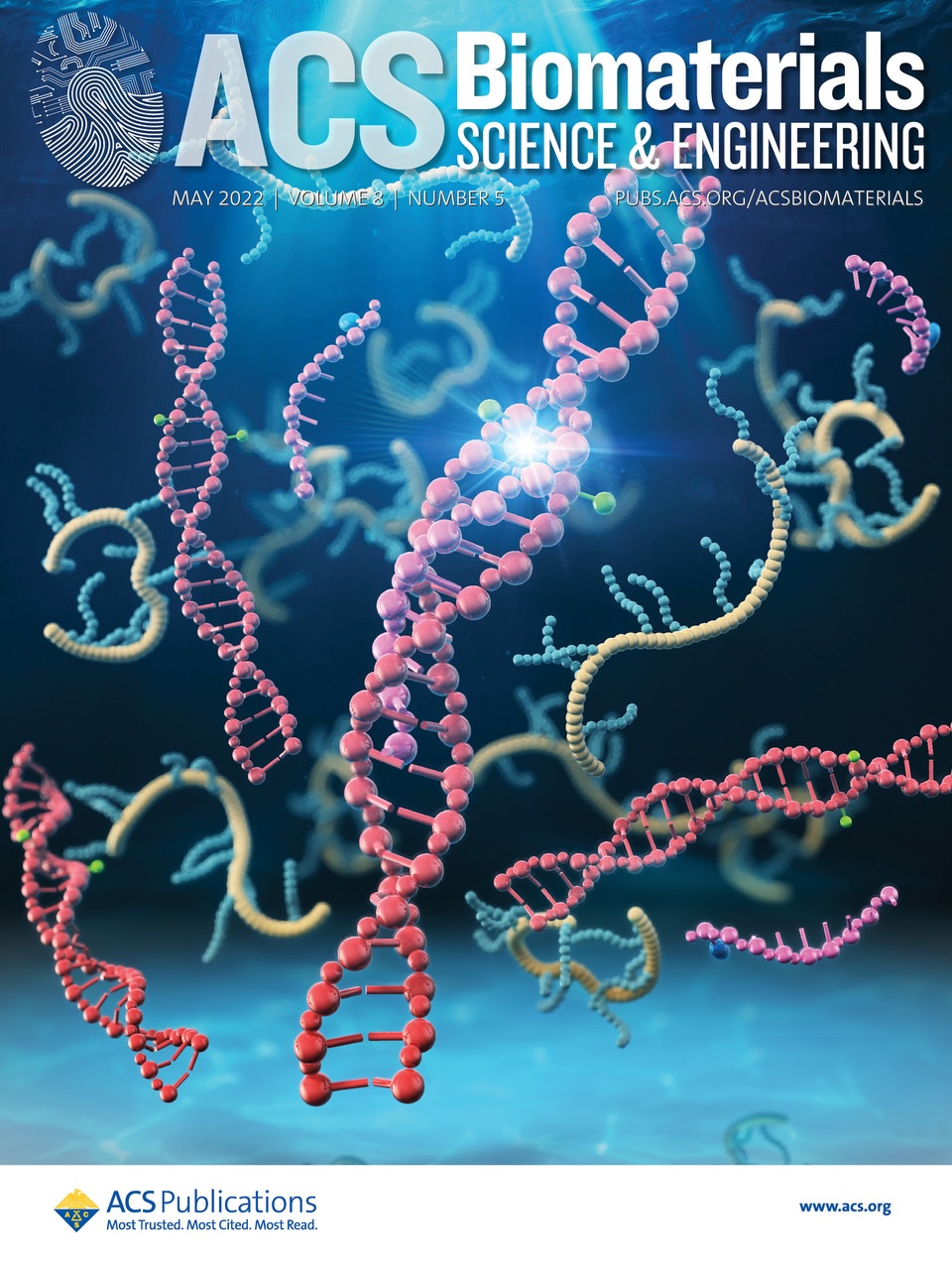Diabetes Primes Neutrophils for Neutrophil Extracellular Trap Formation through Trained Immunity
IF 5.4
2区 医学
Q2 MATERIALS SCIENCE, BIOMATERIALS
引用次数: 0
Abstract
Neutrophils are primed for neutrophil extracellular trap (NET) formation during diabetes, and excessive NET formation from primed neutrophils compromises wound healing in patients with diabetes. Here, we demonstrate that trained immunity mediates diabetes-induced NET priming in neutrophils. Under diabetic conditions, neutrophils exhibit robust metabolic reprogramming comprising enhanced glycolysis via the pentose phosphate pathway and fatty acid oxidation, which result in the accumulation of acetyl-coenzyme A. Adenosine 5′-triphosphate-citrate lyase-mediated accumulation of acetyl-coenzyme A and histone acetyltransferases further induce the acetylation of lysine residues on histone 3 (AcH3K9, AcH3K14, and AcH3K27) and histone 4 (AcH4K8). The pharmacological inhibition of adenosine 5′-triphosphate-citrate lyase and histone acetyltransferases completely inhibited high-glucose-induced NET priming. The trained immunity of neutrophils was further confirmed in neutrophils isolated from patients with diabetes. Our findings suggest that trained immunity mediates functional changes in neutrophils in diabetic environments, and targeting neutrophil-trained immunity may be a potential therapeutic target for controlling inflammatory complications of diabetes.糖尿病通过训练免疫力促使中性粒细胞形成中性粒细胞胞外捕获器
糖尿病期间,中性粒细胞会形成中性粒细胞胞外捕获物(NET),而中性粒细胞过度形成NET会损害糖尿病患者的伤口愈合。在这里,我们证明了训练有素的免疫介导了糖尿病诱导的中性粒细胞NET形成。在糖尿病条件下,中性粒细胞表现出强大的代谢重编程,包括通过磷酸戊糖途径增强糖酵解和脂肪酸氧化,从而导致乙酰辅酶 A 的积累。腺苷-5′-三磷酸柠檬酸裂解酶介导的乙酰辅酶 A 和组蛋白乙酰转移酶进一步诱导组蛋白 3(AcH3K9、AcH3K14 和 AcH3K27)和组蛋白 4(AcH4K8)上赖氨酸残基的乙酰化。药物抑制腺苷-5′-三磷酸柠檬酸酶和组蛋白乙酰转移酶可完全抑制高葡萄糖诱导的中性粒细胞免疫。从糖尿病患者体内分离出的中性粒细胞进一步证实了中性粒细胞训练有素的免疫力。我们的研究结果表明,训练有素的免疫介导了糖尿病环境中中性粒细胞的功能变化,针对中性粒细胞训练有素的免疫可能是控制糖尿病炎症并发症的潜在治疗靶点。
本文章由计算机程序翻译,如有差异,请以英文原文为准。
求助全文
约1分钟内获得全文
求助全文
来源期刊

ACS Biomaterials Science & Engineering
Materials Science-Biomaterials
CiteScore
10.30
自引率
3.40%
发文量
413
期刊介绍:
ACS Biomaterials Science & Engineering is the leading journal in the field of biomaterials, serving as an international forum for publishing cutting-edge research and innovative ideas on a broad range of topics:
Applications and Health – implantable tissues and devices, prosthesis, health risks, toxicology
Bio-interactions and Bio-compatibility – material-biology interactions, chemical/morphological/structural communication, mechanobiology, signaling and biological responses, immuno-engineering, calcification, coatings, corrosion and degradation of biomaterials and devices, biophysical regulation of cell functions
Characterization, Synthesis, and Modification – new biomaterials, bioinspired and biomimetic approaches to biomaterials, exploiting structural hierarchy and architectural control, combinatorial strategies for biomaterials discovery, genetic biomaterials design, synthetic biology, new composite systems, bionics, polymer synthesis
Controlled Release and Delivery Systems – biomaterial-based drug and gene delivery, bio-responsive delivery of regulatory molecules, pharmaceutical engineering
Healthcare Advances – clinical translation, regulatory issues, patient safety, emerging trends
Imaging and Diagnostics – imaging agents and probes, theranostics, biosensors, monitoring
Manufacturing and Technology – 3D printing, inks, organ-on-a-chip, bioreactor/perfusion systems, microdevices, BioMEMS, optics and electronics interfaces with biomaterials, systems integration
Modeling and Informatics Tools – scaling methods to guide biomaterial design, predictive algorithms for structure-function, biomechanics, integrating bioinformatics with biomaterials discovery, metabolomics in the context of biomaterials
Tissue Engineering and Regenerative Medicine – basic and applied studies, cell therapies, scaffolds, vascularization, bioartificial organs, transplantation and functionality, cellular agriculture
 求助内容:
求助内容: 应助结果提醒方式:
应助结果提醒方式:


